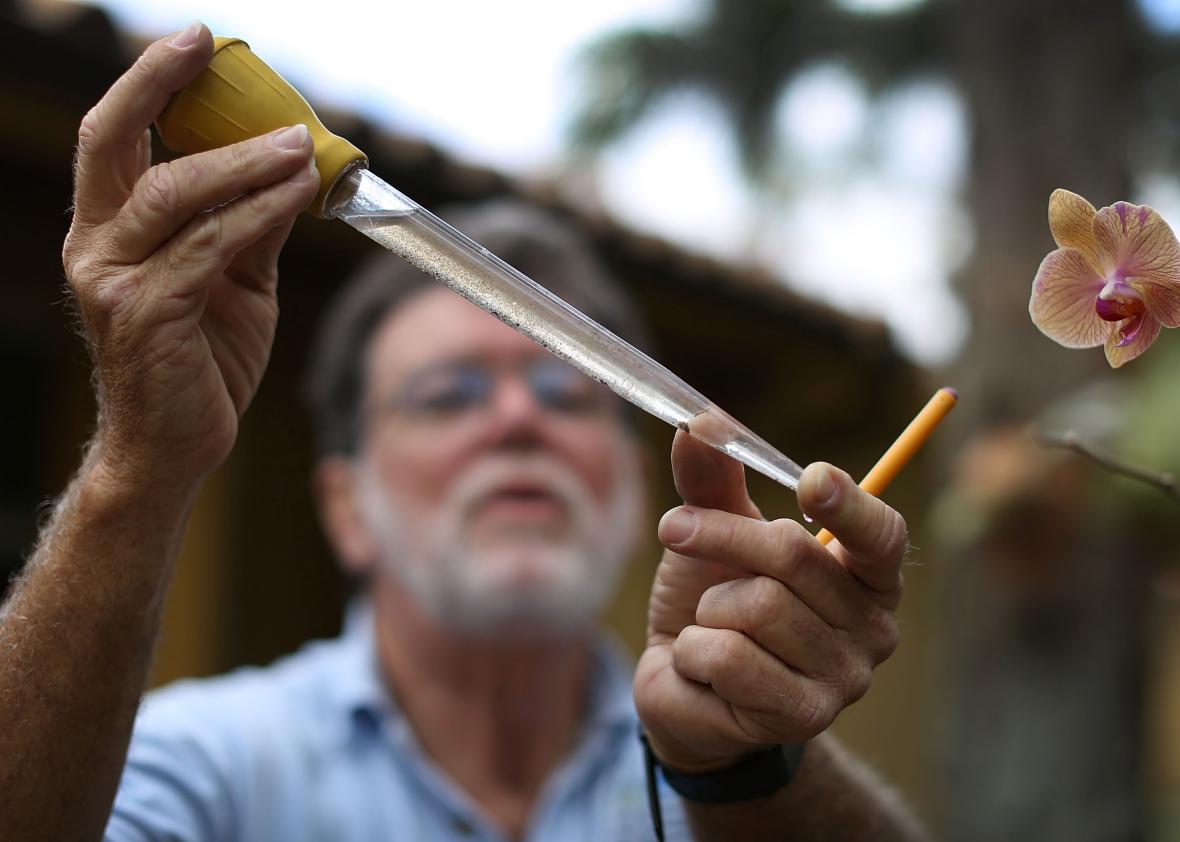Several people in the U.S. have contracted Zika right at home in Florida, the state’s Department of Health announced today. The four cases are the first intances in which individuals have become infected due to local mosquitoes carrying the virus. While over 1,000 cases of Zika have been confirmed in this country, nearly all were acquired during travel to other countries (a handful were acquired through sexual contact from someone who had had recently traveled, and one case was contracted in a research lab).
The four cases contracted in Miami-Dade County were brought to the attention of state officials by healthcare workers. Based on available information, officials believe that all four cases were contracted in a small area—just one square mile—north of downtown Miami.
So is it time to panic yet? Not exactly—it’s been well-known that certain areas of the United States host the aedes aegypti mosquito that spreads the disease. Experts have anticipated that local transmission would happen in the U.S. at some point this summer. That time has now come in Florida. But the virus is not expected to spread as quickly or ferociously here as it did in Brazil. That’s because we don’t have the same problems with standing water that Brazil does, which allows the virus-carrying mosquitos to quickly multiply.
Congress is still stalling over how to fund Zika measures, but last month Governor Rick Scott allocated $26.2 million for the prevention and response to Zika in the state. The Department of Health is now conducting door-to-door canvasing to inform locals of the outbreak and to collect urine samples to monitor for further cases. Earlier this week, the Centers for Disease Control announced they would begin more proactive screening for Zika in pregnant women, as the disease has been proven to cause microcephaly in infants.
Zika does not cause symptoms in 80 percent of those infected, and has a very low mortality rate. In 2015, of the hundreds of thousands of Zika cases reported just three people died after contracting the disease.
Reporting on the Zika epidemic has often referred to “countries where Zika is common” or “countries where Zika-carrying mosquitos are known to exist” as a way of distinguishing travel-related cases from cases acquired locally. Unfortunately, the U.S. is now one of those countries.
